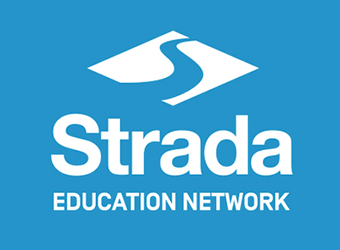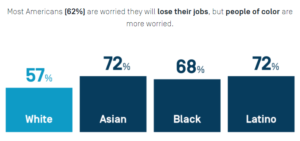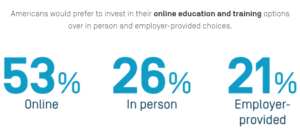 While the global fight to contain COVID-19 continues, millions of Americans face uncertainty as schools and businesses shut their doors. On March 27, President Donald Trump signed into law the Coronavirus Aid, Relief, and Economic Security (CARES) Act, a $3 trillion relief package aimed at reducing the financial fallout for schools, businesses, and individuals. As stimulus checks begin to hit the bank accounts of millions of Americans and unemployment claims continue to rise, the question remains: just how many people have been financially impacted by COVID-19, and to what extent?
While the global fight to contain COVID-19 continues, millions of Americans face uncertainty as schools and businesses shut their doors. On March 27, President Donald Trump signed into law the Coronavirus Aid, Relief, and Economic Security (CARES) Act, a $3 trillion relief package aimed at reducing the financial fallout for schools, businesses, and individuals. As stimulus checks begin to hit the bank accounts of millions of Americans and unemployment claims continue to rise, the question remains: just how many people have been financially impacted by COVID-19, and to what extent?
Strada Education Network, a nonprofit devoted to education and career alignment, has some valuable insights. For the past four weeks, the organization has been surveying 1,000 people across the country weekly to determine the impact of the pandemic on their careers, educations, and overall quality of life.
Americans of color report highest levels of worry and financial hardship
While a majority of Americans worry that they could lose their jobs due to the pandemic, people of color worry more. According to Strada’s most recent survey conducted between April 15-16, 72% of Asian and Latino respondents worried about losing their jobs, compared with 57% of white respondents. 68% of black respondents shared their concern.
As for those who have already lost income due to COVID-19, Latino survey respondents reported much higher rates than other groups: 66% of Latinos lost income within the past month compared with 51% of black and white respondents and 48% of Asians. However, black Americans reported the highest rate of layoffs—25% within the last month alone.
Millennial and Gen-Z Americans report the greatest financial disruptions
Strada’s survey reported that while older Americans experience greater physical risk due to COVID-19, it’s younger populations – specifically Millennials and Generation Z – who are experiencing the greatest financial disruption.
61% of Millennials have reported a job loss or income reduction, with Gen Z following close behind at 56%. Generation X and Baby Boomers reported slightly lower rates of job and income loss at 52% and 44%, respectively. For Generation X and Millennials, job-related fears don’t end with job loss; 38% of Gen X and 37% of Millennials believe that they would need more education to find a comparable job if they were to lose the one they have now. 30% of Generation Z and 21% of Baby Boomers share their concern.
What does this mean for postsecondary education?
Overall, 34% of Americans surveyed believe they will need additional education or training to find another job with the same wages or income if they lose their current jobs due to COVID-19. This belief is slightly greater among Latino and Black Americans, at 38% and 36%, respectively.
When asked whether they would choose to invest $5,000 toward further education or training should such money become available, 53% responded that they would invest in online classes at a college, university, or community college. This is a significant shift from the first week of the survey, where only 38% said they would invest in online education or training.
Even still, most Americans remain hopeful that things will get better soon. In last week’s report, Strada found that 70% of adults believe that the pandemic will no longer affect them personally 6 months from now.
Because news about the virus evolves so quickly, Strada Education Network is updating their survey results weekly and is offering webinars to dig deeper into the data. For more information on how America is being affected by COVID-19, visit their Public Viewpoint website.
RELATED ARTICLES:


